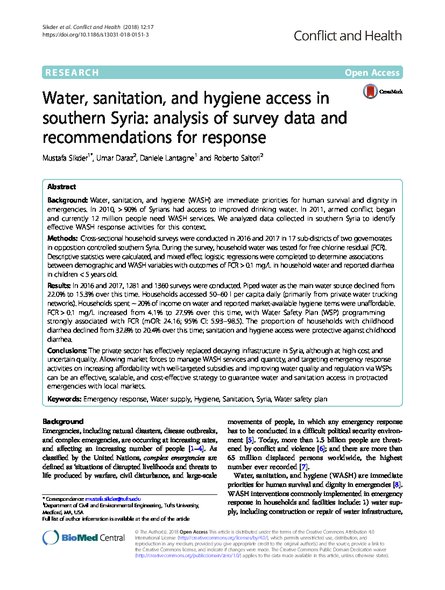
Background
Water, sanitation, and hygiene (WASH) are immediate priorities for human survival and dignity in emergencies. In 2010, > 90% of Syrians had access to improved drinking water. In 2011, armed conflict began and currently 12 million people need WASH services. We analyzed data collected in southern Syria to identify effective WASH response activities for this context.
Methods
Cross-sectional household surveys were conducted in 2016 and 2017 in 17 sub-districts of two governorates in opposition controlled southern Syria. During the survey, household water was tested for free chlorine residual (FCR). Descriptive statistics were calculated, and mixed effect logistic regressions were completed to determine associations between demographic and WASH variables with outcomes of FCR > 0.1 mg/L in household water and reported diarrhea in children < 5 years old.